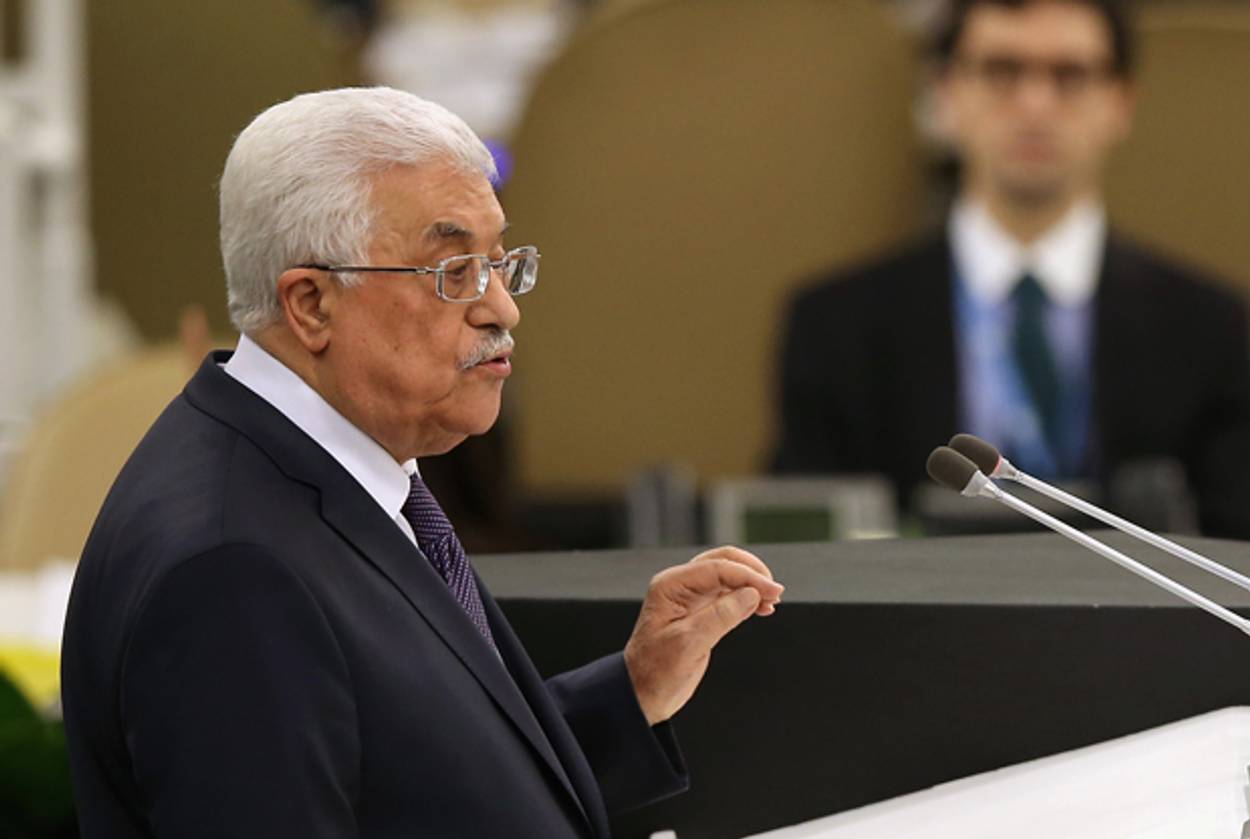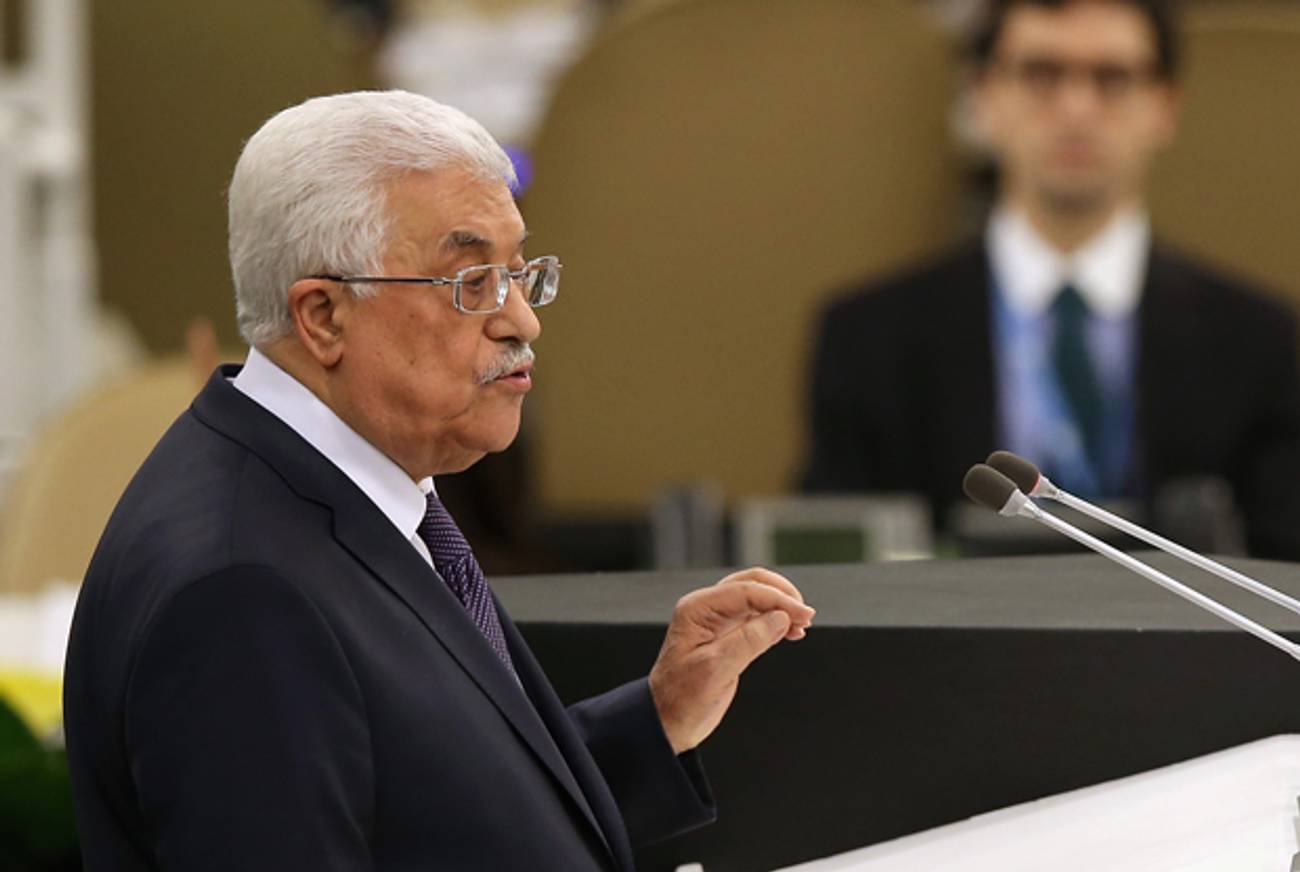Abbas and the Jews
Parsing the Palestinian President’s Words




Yesterday, I wrote a column urging Palestinian president Mahmoud Abbas to recognize Israel as a Jewish state. Among other points, I raised the question of whether or not Jews would be permitted to reside in the future putative state of Palestine; Abbas, I wrote, has avowed not to let that happen.
A young writer named Tim Barker contacted me on Twitter later that evening. Defying the prevalent social media etiquette, we exchanged neither quips nor insults but actual ideas, and Barker convinced me that my characterization of Abbas’s position on this important question was flawed.
Abbas, I insisted, had told Egyptian reporters last summer that “In a final resolution, we would not see the presence of a single Israeli—civilian or soldier—on our lands.” But the Palestinian president, Barker correctly pointed out, was talking about Israeli citizens, not Jewish individuals. “Whether or not it’s good policy,” he tweeted at me, “all nations regulate noncitizen residency.”
Still, I was unmoved. I argued that one was certainly free to make the distinction between Israelis and Jews, but that, either way, the history of Jews in Arab countries left very little room for hope that Jews as such would be welcomed in future Palestine. Barker did not disagree, but provided in turn a statement Abbas had made in a conversation with leaders of the American Jewish community in September of 2010. Because nuances matter a great deal when you’re talking about life-and-death issues, here’s the full quote:
“I will not accept any single Israeli in our territories. And what I mean by Israeli, you know that in the Israeli army there are some Muslims and Druz and Christians, I will not accept any of them but I can accept in the third party Jewish people from outside authorities because we are not against the Jews we are against the Israeli occupation.”
Taken at face value, Abbas’s statement is neither terrifically inspiring nor terribly offensive. Once there’s peace, he seems to be saying, anyone associated with the occupation will not be welcomed. That he sees every Israeli as an irredeemable tool of the occupation speaks volumes.
But there is, I believe, another, even more troubling reading of Abbas’s statement. In Abbas’s formulation, “Israeli”—the sort that would be forbidden from future Palestine—means either all Israeli Jews or Israeli non-Jews who had served in the army. This is an illogical distinction. If what bothered Abbas was the IDF, if what he wanted to do was prevent any Israeli who had ever put on uniform from emigrating to Palestine, he should have said just that, in which case Israeli Jews who did not serve in the army—including conscientious objectors but also haredi yeshiva boys—should be welcome in Jericho or Ramallah or Hebron. If, on the other hand, Abbas was resolute to keep all Israelis as such from moving east of the border, then why not deny also those Christians and Muslims and Druze Israelis who did not serve in the Israeli army?
It makes no sense, unless you believe, as I suggested in my column yesterday, that Abbas is categorically opposed to a solution that will yield “two states, two peoples, each enjoying the right to self-determination, each enjoying sovereignty, each enjoying lasting peace.” His embrace of Jews from “outside authorities” is telling; they are accepted because they do not represent the affirmation of the Jewish right for self-determination, the fundamental pillar of the Jewish state. In other words, it’s not Jews or even Israelis that Abbas has a problem with, but the fact that they had exercised their right for sovereignty in their ancestral homeland. Whatever Abbas says, however he says it, it’s pretty clear that he believes that such a right is reserved to Palestinians alone.
Liel Leibovitz is editor-at-large for Tablet Magazine and a host of its weekly culture podcast Unorthodox and daily Talmud podcast Take One. He is the editor of Zionism: The Tablet Guide.